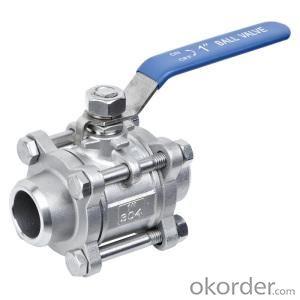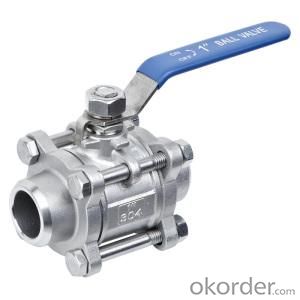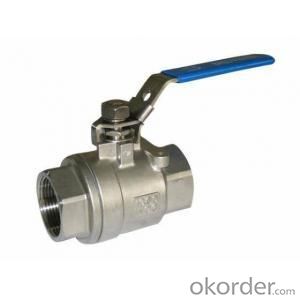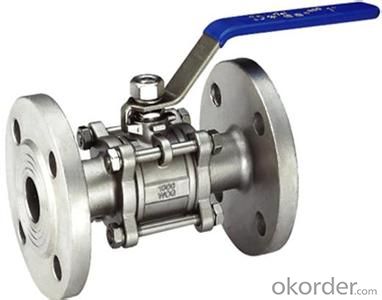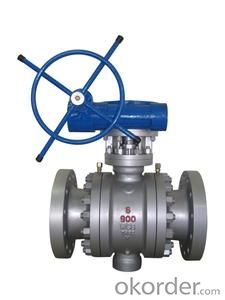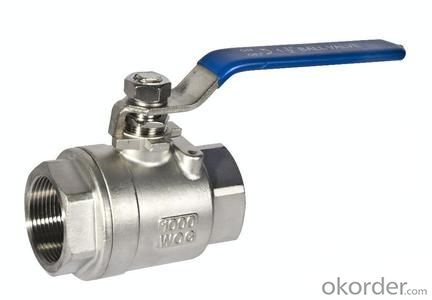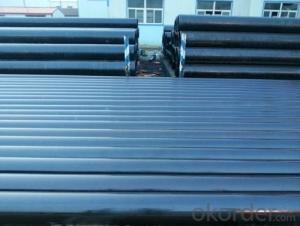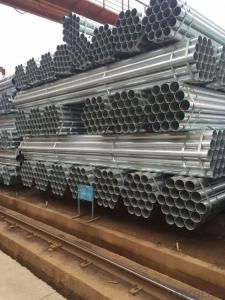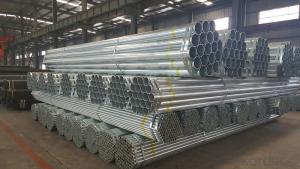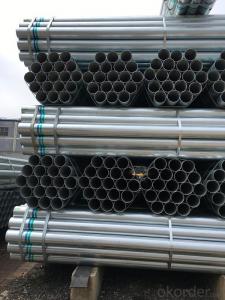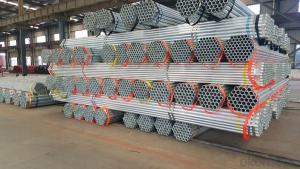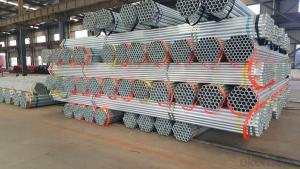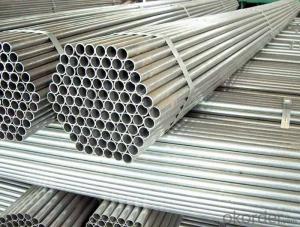STEEL BALL VALVE ASTM, NACE, ASME, and API standards..
- Loading Port:
- Shanghai
- Payment Terms:
- TT OR LC
- Min Order Qty:
- 1 pc
- Supply Capability:
- 10000 pc/month
OKorder Service Pledge
OKorder Financial Service
You Might Also Like
Specifications
1. ASTM, NACE, ASME, and API standards..
The Discription of Ball Valve
Product Description
Technical Specification
| Design standard | API Spec 6D 6A |
| Pressure and temperature rating | ASME B16.34 |
| Face-to-face and end-to-end dimensions | API 6D ASME B16.10 |
| Material specification | ASTM A105, LF2, F316, F316L, F304, F50, F51, 1040 |
| 4140, 410, 17-4PH, INCONEL, MONEL…. | |
| NACE-MR-0175 | |
| Flanged ends standared | ASME B16.5, ASME B16.47, MSS SP-44 |
| Welding ends standard | ASME B31.4, ASME B16.25 |
| Pressure testing | API 6D, API 598, BS 6755 |
| Toughness testing | ASTM A370 |
| Fire testing | API 607 |
| Anti-static device | BS 5351 |
| MT | ASME B16.34, ASTM A275 |
| PT | ASME B16.34, ASTM E165 |
| UT | ASME B16.34, ASTM A388 |
| Nominal Sizes | NPS 12 Reduced Bore |
| Pressure Class | 600LB |
| Construction | Trunnion Mounted |
Design Standard
ASTM, NACE, ASME, and API standards;
Satisfying the strict requirements of petroleum refineries, chemical processing plants, power-generating plants, pulp and paper, food processing, mining and other critical applications.
Quality Control
Our comprehensive evaluation includes on-site audits, inspection at the source, receiving inspections, and destructive material testing.
The ongoing process, led by our in-house metallurgist and QA/QC team, ensures that CMEC Valve is manufactured to the highest industry standards.
Workshop
More than 20 years experience
40 sets of advancing CNC drilling and milling machine, 15 sets of machining center, 5 sets of CNC grinding machine and 3 sets of automatic welding machine.
Highest accuracy and low emission.
- Q: How do steel pipes perform in corrosive environments?
- Steel pipes perform well in corrosive environments due to their high resistance to corrosion. They are commonly used in industries such as oil and gas, chemical processing, and wastewater treatment where exposure to corrosive substances is prevalent. The protective oxide layer on the surface of steel pipes prevents the material from getting corroded, ensuring long-term durability and reliability. Additionally, steel pipes can be further protected by coatings or linings to enhance their resistance to corrosion in highly aggressive environments.
- Q: How are steel pipes threaded for easy installation?
- Steel pipes are threaded for easy installation by using a specialized machine called a pipe threading machine. This machine cuts precise threads onto the ends of the steel pipes, allowing them to be easily connected and tightened together using threaded fittings or couplings. This threading process ensures a secure and leak-proof connection, making installation quick and efficient.
- Q: How do steel pipes compare to other materials, such as PVC or copper?
- Steel pipes have several advantages over other materials such as PVC or copper. Firstly, steel pipes are incredibly durable and strong, making them suitable for heavy-duty applications and high-pressure environments. Additionally, steel pipes have a longer lifespan compared to PVC or copper, as they are less prone to cracking, corrosion, or degradation. Steel pipes also provide better fire resistance and are more resistant to extreme temperatures. However, steel pipes can be more expensive and require professional installation due to their weight and rigidity. PVC pipes, on the other hand, are lightweight, affordable, and easy to install, but they may not be as durable or suitable for certain applications. Copper pipes offer excellent corrosion resistance and are commonly used for water supply systems, but they can be more expensive and require skilled labor to install. Ultimately, the choice between steel, PVC, or copper pipes depends on the specific requirements of the project and the desired balance of cost, durability, and performance.
- Q: What is the role of steel pipes in the construction of bridges and tunnels?
- Steel pipes play a vital role in the construction of bridges and tunnels as they provide structural support and durability. They are commonly used for the fabrication of the framework and foundation of these infrastructures. Steel pipes offer high tensile strength, corrosion resistance, and the ability to withstand heavy loads, making them an ideal choice for ensuring the integrity and longevity of bridges and tunnels. Additionally, steel pipes can be easily welded, allowing for efficient and cost-effective construction methods.
- Q: How are steel pipes used in the manufacturing of HVAC systems?
- Steel pipes are commonly used in the manufacturing of HVAC systems for various purposes. They are primarily used for transporting fluids such as water, refrigerants, and gases throughout the system. Steel pipes provide durability and strength, ensuring the safe and efficient transfer of these substances. Additionally, steel pipes are often used for structural support, acting as a framework for the HVAC system. Overall, steel pipes play a crucial role in the manufacturing of HVAC systems by facilitating fluid transportation and providing structural stability.
- Q: Seamless steel tube with the tube with what is the difference?
- Seamless pipe can withstand ultra-high pressure, of course, its wall thickness will increase, which needs to be designed according to pressure requirements. It is generally used in high-pressure oil pipes, boiler tubes and other high temperature and high pressure equipment. There are also seamless tubes for structural purposes, depending on the design requirements.
- Q: 20# seamless steel pipe and seamless steel pipe 20G what is the difference?
- 20#: low carbon steel seamless steel pipe, carbon steel is generally divided into low carbon steel, medium carbon steel and high carbon steel three, 45# steel in carbon steel, low carbon steel is lower than 45#, 45# is higher than that of high carbon steel, seamless steel pipe, such as no special requirements, using 20# seamless steel tube. 20# seamless steel pipe material is 20# steel, the strength is slightly higher than 15#, very little quenching, no temper brittleness. Cold plastic deformation and for bending, rolling, bending and hammer arch processing, arc welding and contact welding welding performance is good, when the thickness is small, prone to strict requirement of shape crack or complex shape parts. The cold or normalizing state of the cutting process is better than that of the annealed one. It is generally used to make workpieces with little stress and high toughness.
- Q: What are the advantages of using steel pipes in the manufacturing of furniture?
- There are several advantages of using steel pipes in the manufacturing of furniture. Firstly, steel pipes offer exceptional strength and durability, ensuring that the furniture will be long-lasting and capable of withstanding heavy use. Secondly, steel pipes are highly resistant to corrosion, making them suitable for both indoor and outdoor furniture. Additionally, steel pipes provide a sleek and modern aesthetic, adding a touch of sophistication to the furniture design. Lastly, steel pipes are relatively lightweight compared to other materials like wood or concrete, making transportation and installation easier. Overall, using steel pipes in furniture manufacturing offers a combination of strength, durability, aesthetic appeal, and practicality.
- Q: What is lined pipe?
- Is the coating of the inside of the pipe, such as pipe conveying sulfuric acid will corrode, corrosion, but soft plastic pipe, buried in the ground to wall thicker, then you can use the liner and characteristics of hard for using steel pipe laying, sheathed in the steel pipe into the thin plastic tube, it can transport the sulfuric acid,
- Q: How are steel pipes protected against internal scaling?
- Internal coating or lining is a process employed to safeguard steel pipes from internal scaling. This entails applying a protective layer on the inside of the pipe to prevent the formation of scales or deposits. Multiple techniques are utilized for this purpose. One prevalent approach is the application of epoxy coatings. Epoxy, a resilient and corrosion-resistant material, forms a continuous barrier on the pipe's interior. It effectively hinders the accumulation of minerals and other substances that contribute to scaling. Epoxy coatings are commonly sprayed or brushed onto the inner surface of the pipe and then hardened to create a durable and smooth finish. Cement mortar lining is another method used to protect steel pipes from internal scaling. This involves applying a layer of cement mortar to the pipe's interior. The cement mortar acts as a barrier against scaling and offers additional corrosion protection. This lining process is typically employed for large-diameter pipes utilized in water distribution systems. Polyethylene (PE) lining is yet another technique deployed to safeguard steel pipes against internal scaling. PE lining necessitates the insertion of a high-density polyethylene liner into the pipe. This liner acts as a barrier against scaling and enhances fluid flow by reducing friction. PE lining is frequently used in applications that require a smooth interior surface, such as oil and gas pipelines. Apart from these methods, regular maintenance and cleaning of the pipes can also aid in preventing internal scaling. This may involve using chemical cleaning agents or mechanical cleaning techniques to eliminate any deposits that have formed on the pipe's interior surface. Overall, safeguarding steel pipes against internal scaling is vital to maintain their efficiency and prolong their lifespan. By employing various coating and lining methods, along with implementing appropriate maintenance practices, the risk of internal scaling can be significantly diminished.
Send your message to us
STEEL BALL VALVE ASTM, NACE, ASME, and API standards..
- Loading Port:
- Shanghai
- Payment Terms:
- TT OR LC
- Min Order Qty:
- 1 pc
- Supply Capability:
- 10000 pc/month
OKorder Service Pledge
OKorder Financial Service
Similar products
Hot products
Hot Searches
Related keywords
